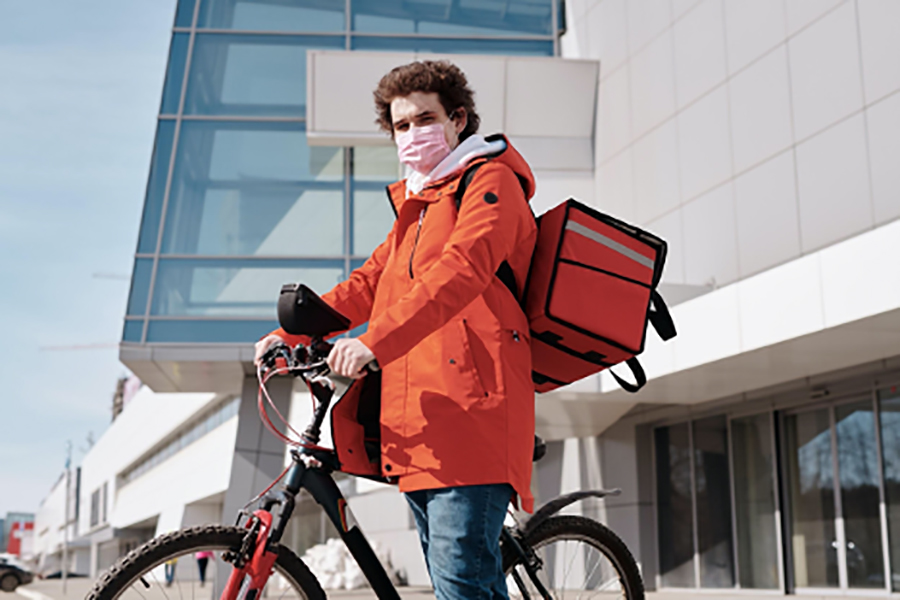The daily focus of many business owners has gone from business as usual to doing everything to keep their heads above water. It’s not an easy task to run a business during times of covid, especially when you happen to be in an industry where you rely on offline customers.
Mike Jordan, CEO of Summit Defence, has put together ten tips to ensure your retail business is COVID-proof.
1. Sticker roadmap
Covid prevention often starts with social distancing. This isn’t always as easily achieved in an indoor space. One of the methods you can ensure customers will keep their distance from both your staff and each other is setting out a route with a one-way system to guide customers safely through your business. Use stickers, tape, and barricades to prevent people from crossing paths.
2. After hours
Covid-proofing your business doesn’t stop at closing time. Once all customers have left the premises, you are given the time and space to properly sanitize your building, furniture, and products to start fresh the next day. Once it’s time to head home, also have your staff thoroughly clean their hands and attire if applicable.
3. Follow the rules
Clear and open communication is always important, but even more so when it comes to our health and safety. Ensure your staff is fully informed about the rules in place and ensure visitors are aware of them even before entering your premises by keeping them informed on social media and notices at the entrance. If someone doesn’t follow the rules, don’t be afraid to call them out and correct them. Keep in mind that they probably aren’t offending on purpose as the rules can be confusing with government advice changing daily. Be nice about it and help each other!
4. Limit group sizes
No matter how many rules or measures you put in place, they won’t have the same effect if too many people are present. Therefore, it is essential to limit the number of people you allow into your business according to the amount of space you have. For restaurants, this is easy to enforce by not allowing more guests than seats available and have guests book a time slot beforehand. You could hand out shopping baskets or other tokens for the available “shopping spots” in a retail environment. If there are no more baskets, there’s no more space.
5. No more cash
Communicate with your customers that you prefer them to pay by card where possible. This is a lot faster and removes extra steps involved, which means less physical contact. Cash is also known to be one of the biggest carriers of germs and other woes. A bonus tip for restaurants is to set up an app for customers to put their orders through. This allows your staff to keep their distance even more.
6. Through a window
Another way of keeping customers apart and making it less likely for them to infect each other in case they burst out sneezing is to install perspex shields. They’re often lightweight, flexible, and thanks to their see-through characteristics, you won’t lose that personal touch with your customers while at the same time keeping yourself and your staff protected.
7. Sparkly clean
Pandemic or not, people like touching things. While you can ask your customers to only touch those things they need or intend on buying, this isn’t easy to enforce. To limit the number of germs that potentially get spread, you could install a cleaning station at the entrance where visitors can sanitize their hands and shopping cart or basket if available. For a maximum effect, place multiple sanitizer dispensers throughout your business.
8. Stay up to date
Setting up measures and rules begins with staying up to date with the current situation and government regulations. Research what industry-specific restrictions apply to your business and what advice is applicable. Keep in mind that as the situation is unpredictable and things can change overnight, it’s important to stay in the loop and adapt.
9. Keep your staff safe
It’s not all about keeping your customers safe, but also you and your staff. An excellent way to ensure they stay healthy is to appoint everyone their own workspace. This way, they don’t have to cross paths too much with other employees and customers. Everyone has their task with the fitting work area. Mark their spots with tape on the floor and other surfaces to remind them.
10. Rethink delivery
The best way of avoiding contamination is to prevent people from coming into your business in the first place. Think about ways to deliver your products and services to your customers at home by setting up an online store or partnering with food delivery services.o This protects your customers and staff and makes your business more sustainable in the event of another lockdown.




































